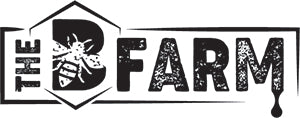In the gentle hum of a summer day, bees are the heartbeat of the season, tirelessly pollinating the world's blossoms. But there's a buzz of uncertainty in their flight path, a threat known as colony collapse disorder (CCD). For keepers of this vital subset of our ecology, understanding how to tackle CCD head-on is a task that requires immediate attention. Here's how beekeepers can combat colony collapse disorder.
The Power of Diversity in Beekeeping
Just as our society thrives on diversity, so too do our bee colonies. A known thing in the apiary community is that monoculture is a foe to biodiversity. When beekeepers preserve a variety of bee species and floral sources, they help their colonies resist disease and environmental changes. By maintaining a diverse landscape, beekeepers offer their bees a rich tapestry of flora, a defensive line against the impacts of CCD.
Ensuring Optimal Nutritional Environments
Like us, bees require a nutritious diet to thrive. Their diet, however, consists mainly of nectar and pollen. To support the health of the hive, beekeepers must provide high-quality, diverse forage that is free from pesticides and other contaminants. Foraging for diverse resources fortifies the bee's immune systems and improves their overall well-being.
Monitoring the Hive for Parasites and Pests
Vigilance is key in beekeeping. Regular inspections and wary monitoring are essential to catch the dreaded Varroa mite and other pests early on. Treatments that are timely and gentle on the bees are crucial. A proactive approach, such as integrated pest management (IPM), is beneficial for both the bees and the environment.
Management Practices for Stress-Free Colonies
Like many organisms, bees and their colonies can succumb to stress. Responsible beekeeping management should aim to minimize stress factors like hive overcrowding, the use of harsh chemicals, and long-distance hive transportation. Stress reduction plays a significant role in preventing CCD.
Community Engagement and the Sharing of Knowledge
In the formidable challenge of preventing CCD, the beekeeping community must stand together. Knowledge sharing and open communication about best practices, lessons learned, and warning signs can vastly improve the collective ability to combat CCD. Working alongside other beekeepers, environmental organizations, and researchers can lead to better and more innovative strategies.
Save the Bees at The B Farm
At The B Farm, we're all about the bees. We've made it our mission to provide resources and support to beekeepers who are ready to combat colony collapse disorder and other illnesses. The B Farm is proud to offer mite-resistant honey bee hives for sale. Our beehives are the solution you’ve been buzzing around. Act now and harken the gentle hum of our summer days back to undisrupted peace. Be the change the bees need.
